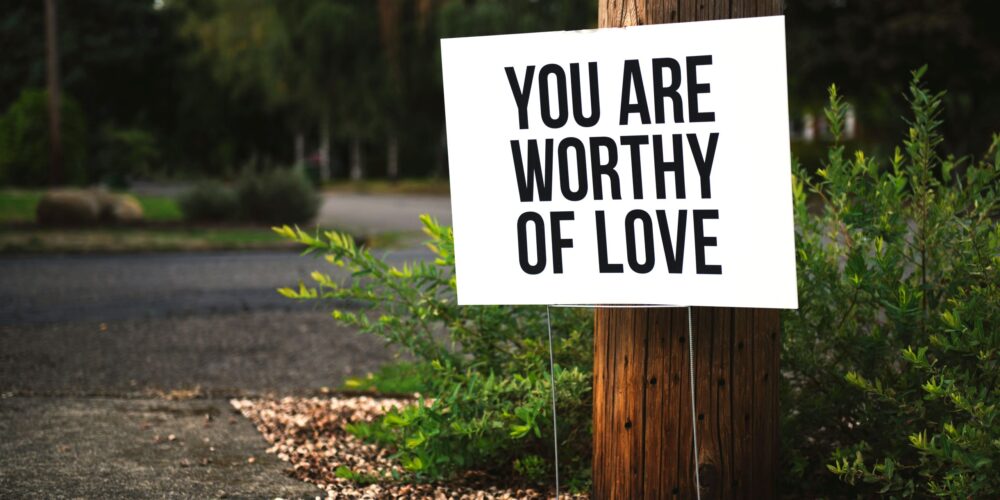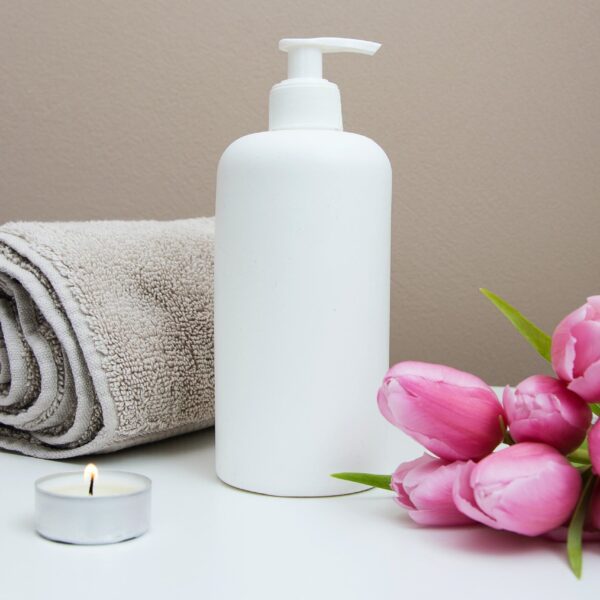Have you ever heard about the Japanese practice known as “Shinrin-Yoku”, which is also known as forest bathing?
It’s a simple yet profound concept where people immerse themselves in nature, not for exercise but simply to breathe in fresh air, relax, and absorb the calming forest atmosphere.
In Japan, people consider it as a legitimate form of therapy and research supports its benefits.
Studies show that spending time in nature can lower cortisol levels (the stress hormone), improve mood, and even boost your immune system.
The practice of forest bathing shows us that self-care doesn’t always have to be complicated, it can be as simple as slowing down and spending time outdoors.
In today’s fast-paced world, though, slowing down is easier said than done. More people are feeling overwhelmed and stretched thin by responsibilities at work and home.
Burnout is on the rise, with many of us juggling so many tasks that our mental and physical health takes a backseat.
It has become such a widespread issue that the World Health Organization recognized burnout as an occupational health issue in 2019.
People everywhere are feeling the weight of constant deadlines, non-stop emails, and endless to-do lists.
Have you heard the story of Arianna Huffington, co-founder of The Huffington Post? In 2007, she collapsed from exhaustion and sleep deprivation.
Her collapse left her with a broken cheekbone and became a harsh wake-up call. She realized she had been neglecting her own self-care, and it was costing her dearly.
This experience drove her to make self-care a priority, and she later founded Thrive Global, a company dedicated to promoting well-being, sleep, mindfulness, and overall health.
Arianna Huffington’s story is a powerful reminder that even the most successful and driven people also need to step back and take care of themselves.
Self-care isn’t a luxury or something to feel guilty about, it’s important for living a healthy and balanced life.
The growing issue of burnout has sparked movements that promote a more mindful and intentional way of living.
One such movement is “slow living,” which started as a response to our increasingly fast-paced and hyper-connected world.
Originating in Italy with the slow food movement in the 1980s, this philosophy has since expanded into a broader lifestyle approach.
Slow living encourages people to savor the moment, be present, and reject the constant rush to do more. It’s about taking a step back, focusing on what truly matters, and allowing ourselves to rest.
This movement aligns perfectly with the principles of self-care, reminding us that it’s okay to slow down, breathe, and prioritize our well-being.
In today’s world, where burnout is rampant and life often feels like a race against the clock, self-care is more important than ever.
Whether it’s through simple acts like spending time in nature, setting boundaries to prevent burnout, or embracing a slower, more mindful way of living, self-care allows us to maintain our mental and physical health.
It’s not selfish or indulgent—it’s a necessity.

In this blog, we’re going to talk about self-care and explore some practical tips to help you incorporate it into your daily life.
We’ll discuss how self-care can make a significant difference in your overall well-being. So, let’s get started on this journey to better care for ourselves
Table of Contents
Why Self-care Is Important?
In today’s fast-paced world, stress has become our constant companion. Wherever we go, it follows.
And when we don’t practice self-care, we make ourselves vulnerable to prolonged and chronic stress which can lead to physical, mental, and emotional exhaustion.
Over time, this constant state of stress wears down our bodies and minds and makes even the simplest tasks feel overwhelming. Our productivity declines, we become more frustrated, and our health takes a serious hit.
When we experience stress, our body’s natural response system, the sympathetic nervous system, kicks in. It’s designed to help us handle immediate challenges by putting us in “fight or flight” mode.
However, when we’re constantly exposed to stress, this system stays on high alert for long periods, and this can wear us down.
Being stuck in this state makes it hard for us to relax, sleep well, or focus on anything besides the stress itself.
Living with constant stress affects more than just our mood; it can increase the risk of developing conditions like anxiety, depression, heart disease, and even immune system issues.
Our bodies start to prioritize dealing with stress over other important processes, like healing and rejuvenating. Without self-care, we’re left running on empty.
This is where self-care comes in because when we practice self-care, our parasympathetic nervous system gets activated which helps us relax and recover.
This is the body’s natural way of restoring balance. This system helps us unwind, reduce stress, and allow our bodies and minds to recover. It’s like giving yourself permission to breathe and reset.
Beyond reducing stress, self-care also helps reduce inflammation, supports better health, and strengthens mental resilience which makes it easier to face challenges that come our way.
In today’s world, self-care is a non-negotiable part of maintaining balance and well-being. It’s not selfish, it’s essential for living a healthier, happier, and more productive life.
How Can I Practice Real Self-care?
When people hear the term “self-care,” they often think of indulgent experiences like spa days or luxury getaways. If you also thought the same then I don’t blame you because that’s how it sounds like at first.
While those activities can certainly be part of self-care, the real essence of self-care goes much deeper. It’s not a one-off treat or something you enjoy only when life gets overwhelming.
Real self-care is about building sustainable and consistent practices that support your overall well-being.
At its core, self-care is about anything you do to take care of yourself – mentally, physically, and emotionally so that you can function at your best.
It’s about making sure you’re regularly refilling your own cup so that you have the energy and strength to manage life’s challenges.
This can include small but impactful habits like getting enough sleep, eating nourishing foods, and setting boundaries in your relationships. Self-care isn’t always glamorous, but it’s what allows you to thrive in the long run.
The misunderstanding that self-care is a luxury makes most people neglect it. They think they don’t have the time or resources. But the truth is, self-care is essential.
Without taking the time to care for your own well-being, you’re likely to run into burnout, stress, or even health issues down the line. It’s about creating daily habits that support your mental, physical, and emotional balance.
Real self-care can look different for everyone. For some, it may be taking a few minutes each morning to meditate and center their thoughts.
For others, it might be setting aside time for a hobby that brings joy or scheduling regular breaks during the workday.
What matters most is that you’re actively taking steps to nurture your well-being, not just as a response to stress but as a preventative measure to keep yourself grounded and healthy.
True self-care isn’t a luxury, it’s a necessity for living a balanced and fulfilling life.
How Do I Teach Myself Self-care?
Self-care isn’t a one-size-fits-all concept. What works for one person might not work for another, so it’s important to figure out what activities resonate with you and fit into your life.
Teaching yourself self-care starts with understanding that it’s a personal journey, something you need to explore and tailor to your specific needs.
The key is to find self-care practices that are sustainable and realistic. It’s easy to think of grand gestures like taking a two-week vacation after one stressful day, but that’s not always feasible.
While big breaks are great once in a while, they shouldn’t be the only form of self-care you rely on. Self-care is about creating manageable habits that you can consistently incorporate into your everyday routine.
Start by paying attention to what makes you feel recharged and calm. Maybe it’s taking a quiet walk in nature, reading a book, or journaling your thoughts.
Once you’ve identified activities that nurture your mental, physical, or emotional well-being, integrate them into your daily life.
This could mean setting aside 10 minutes each morning for meditation or perhaps scheduling a weekly check-in with yourself to assess how you’re feeling.
The goal is to make self-care a regular part of your life, rather than something you turn to only in times of crisis.
When you create a routine that includes self-care, you’re investing in your long-term health and well-being. These routines don’t have to be time-consuming or extravagant, they just have to be intentional.
By teaching yourself self-care, you’re acknowledging the importance of your well-being and giving yourself permission to prioritize it.
You’re creating a foundation for a more balanced and healthier life, one small and sustainable step at a time.
What Are the 7 Pillars of Self-care?
The seven pillars of self-care include different areas of your life that need attention for your overall well-being.
Self-care isn’t just about mental health or physical health, it includes different aspects that contribute to a balanced and fulfilling life. Let’s briefly explore each pillar:
Mental Self-care
This pillar focuses on nurturing your mind. It’s about managing stress, learning how to cope with challenges, and having a positive mindset.
Practices like mindfulness, reading, journaling, or doing activities that challenge and stimulate your mind are important for maintaining mental health.
Physical Self-care
It is about taking care of your body through proper sleep, regular exercise, hydration, and balanced nutrition.
Physical self-care also includes scheduling rest and relaxation time to prevent burnout and giving your body the attention it needs to function optimally.
Emotional Self-care
Understanding and processing your emotions is a fundamental aspect of self-care.
This includes understanding your feelings, expressing them in healthy ways, and finding outlets that allow emotional release, such as talking to a friend, therapy, or doing creative activities.
Spiritual Self-care
This isn’t necessarily about religion, but rather finding meaning and purpose in life.
Spiritual self-care might include practices like meditation, prayer, or connecting with nature, anything that helps you feel grounded and in tune with a deeper sense of self and the world around you.
Social Self-care
Positive relationships and social interactions are key to emotional and mental well-being.
Whether it’s spending time with loved ones, maintaining meaningful friendships, or joining supportive communities, social self-care is all about connection and belonging.
Environmental Self-care
Your surroundings can greatly affect your mood and productivity.
This pillar is about creating an environment that feels comfortable and supportive, whether that means decluttering your space, adding plants for a calming touch, or making sure you have a dedicated area to relax.
Recreational Self-care
Recreational self-care is about things that make you happy, help you relax, and give you a sense of fulfillment. It is very important to make time for hobbies and interests that allow you to unwind and enjoy.
Whether it’s reading, playing sports, hiking, painting, or even just watching your favorite show, recreational self-care is about making sure you’re nurturing your inner self by doing things purely for pleasure.
What Are 7 Ways to Take Care of Yourself?
Now that we’ve explored the importance and foundations of self-care, let’s talk about some simple tips to practice self-care in your everyday life.
1. Live a Healthy Lifestyle
The foundation of any good self-care routine starts with living a healthy lifestyle. It’s the groundwork or the foundation for your self-care to be effective.
Think of self-care as the extra steps you take to support your overall well-being, but it won’t mean much if the basics aren’t in place.
To live a healthy lifestyle, you’ll have to focus on a few key areas.
First, ensure you’re getting enough sleep. Good quality rest is vital for both your mental and physical health, so try to develop a consistent sleep routine.
Next, eat a well-balanced and healthy diet filled with nutritious foods so you can give your body and mind the right kind of fuel. When you nourish yourself with the right foods, you’ll have the energy and mental clarity to face each day.
Regular exercise or any form of physical activity is another important aspect of a healthy lifestyle.
Whether it’s going for a run, a yoga session, or working out in the gym, find the activity that resonates with you and incorporate it into your daily life.
Don’t forget to stay hydrated. Our bodies are made of 70% water so drinking enough water each day is important for your body’s natural functions.
Lastly, if you’re taking multivitamins or prescription medications, don’t skip them.
When you prioritize these fundamental habits, self-care becomes an extension of your healthy lifestyle. Instead of being a luxury or afterthought, it supports and builds on the strong foundation you’ve already created.
2. Practice Mindfulness
In today’s fast-paced world, our minds are constantly racing, thinking about past mistakes or worrying about future uncertainties.
It’s as if our minds are running on overdrive even when they don’t need to be, which inevitably leads to exhaustion and burnout.
To counter this, we need to teach ourselves how to slow down and regain control over our thoughts.
One of the best ways to do this is through mindfulness meditation. Practicing mindfulness means training your mind to focus on the present moment rather than letting it spiral into past regrets or future anxieties.
Being mindful is about becoming aware of your thoughts, feelings, and surroundings without judgment so you can ground yourself in the present moment.
You’ll learn to calm your mind if you start meditating even for a few minutes a day.
As you practice, you’ll notice that it becomes easier to control your thoughts, prevent your mind from constantly racing, and reduce stress.
The beauty of mindfulness is that it can be practiced anytime and anywhere. Whether you’re sitting at home in meditation or simply being more present while walking, eating, or having a conversation.
The key is consistency. Just like any other form of self-care, mindfulness works best when you make it a regular habit.
I am sharing a few blogs we’ve written on mindfulness so you can learn more about this concept if you’re interested.
- What Is Mindfulness And Why Mindfulness Is A Superpower
- What Is Mindful Living And How To Live Mindfully
- What Is Mindfulness Meditation And How To Do It
- How To Practice Mindfulness In Your Daily Life
- 7 Healthy Habits to Live a Mindful Life
- 5 Indispensable Mindful Living Tools
3. Start Journaling
One of the best things we can do for our minds is therapy—it provides an outlet for our thoughts, emotions, and worries.
But if therapy isn’t an option or you’re looking for an additional way to care for your mental health, journaling comes close.
Journaling is like having your personal therapist with you at all times, allowing you to release pent-up thoughts, explore your emotions, and gain clarity on life’s challenges.
In fact, we’ve started journaling ourselves a few weeks ago, and we can honestly vouch for its benefits. It’s given us a safe space to reflect, process emotions, and find calm in the storm of daily life.
Whether it’s writing down your goals, tracking your mood, or simply letting out whatever’s on your mind, journaling offers a way to organize your thoughts and reduce mental clutter.
And if you’re looking for the perfect tool to get started, we highly recommend our Mindful Living Digital Planner.
It’s more than just a planner, it’s a comprehensive journal and health tracker designed to help you practice mindfulness, gratitude, affirmations, and self-care.
You can use it to organize your days, weeks, and months, set meaningful goals, and even manifest them through monthly and yearly vision boards.
It’s an all-in-one tool to help you stay grounded, take care of your mental and physical health, and live a more intentional life.

If you’re ready to take control of your mind and start practicing self-care, journaling is one of the simplest and most powerful ways to begin.
Related blogs on journaling:
- What Is Journaling and What Are Its Benefits?
- What Are The Different Types of Journaling
- 5 Simple Steps to Start Journaling for Mental Health
- How and Why You Should Start a Gratitude Journal
- How to Journal for Personal Growth and Self-improvement
- What Is a Manifestation Journal and How to Journal for Manifestation
- How to Start a Health and Wellness Journal
- How Can Journaling Boost Your Productivity
- How to Journal for Overthinking
- What Is a Morning Journal and How to Journal in the Morning?
- Journaling vs. Keeping a Diary: What’s the Difference?
4. Avoid Stress by Setting Boundaries
Another important part of self-care is learning how to avoid stress by setting boundaries.
This means setting clear limits between yourself and the sources of stress in your life, whether that’s work, toxic relationships, or even social media.
The modern world has made it easier than ever to stay connected, but this constant connection comes with its own set of challenges.
With the rise of the internet and social media, we’re now flooded with information, opinions, and news – most of which we don’t need and often can’t control.
This constant influx of content can be a burden on our mental well-being, especially when it revolves around negative or stressful events. Learning to set boundaries from these sources is key to protecting your peace of mind.
At work, for instance, it’s important to set clear boundaries about your time and availability. If you’re always on call, it becomes impossible to fully switch off and recharge.
Similarly, when it comes to relationships, it’s crucial to distance yourself from toxic people or situations that consistently bring you down or cause emotional harm.
Remember, your mental health is more important than pleasing everyone.
Social media is another huge stressor. While it can be great for staying connected, it’s also a major source of comparison, misinformation, and negativity.
Taking regular breaks or limiting your screen time can do wonders for your mental clarity.
Setting boundaries isn’t about shutting the world out, it’s about creating a healthy balance that allows you to thrive.
Once you start defining what you need to protect your energy, you’ll find yourself feeling less stressed and more in control of your life.
5. Make Time for Your Hobbies
Another powerful self-care tip is to make time for your hobbies, something that genuinely makes you feel good.
Doing something you love not only makes you happy but also allows you to disconnect from the stresses of everyday life.
Whether it’s sketching, painting, designing, or playing an instrument, hobbies have a way of lifting our spirits and giving us that sense of fulfillment.
For some people, it could be as simple as lifting weights, playing a sport, or crafting something with their hands.
For others, it might be creative outlets like writing, photography, or gardening. Whatever it is, hobbies allow your mind to unwind and help you become creative while releasing feel-good hormones like dopamine and serotonin.
Doing activities that make you happy can also act as a form of meditation because they keep your mind in the present moment and away from worries about the past or future.
It’s an opportunity to tap into your inner self, without the pressures of performance or deadlines.
Self-care isn’t just about resting; it’s also about energizing yourself through activities that nourish your soul. So, make it a point to work on your hobby each day, even if it’s just for a short while.
By doing what makes you happy, you’re investing in your mental well-being and giving yourself a much-needed break from life’s stresses.
6. Do Social Activities
Social activities are an essential part of self-care and very important for our overall well-being because we humans are naturally social creatures.
While there are many ways to stay connected online, like chatting with friends or joining virtual communities but nothing quite compares to face-to-face interactions.
Physical presence has a much deeper and more powerful impact on our emotional and mental health.
Spending time with our friends and family gives us a sense of support, comfort, and a chance to escape from the everyday pressures of life.
Meaningful conversations in-person help reduce feelings of loneliness and increase happiness. Even simple activities like going for a walk or organizing a game night can improve your mood.
You don’t need grand events to enjoy the benefits of social activities, small moments count too.
A simple walk or hike with a friend, planning a casual trip, playing board games, or even having lunch with someone you care about can lift your mood and help you feel more connected.
Plus, when you spend time with others in a social setting, your body releases endorphins, the “feel-good” hormones that naturally help relieve stress and improve your mood.
In a world where we’re often glued to our screens, it’s important for us to step outside and foster those real-world connections.
Incorporating social activities into your routine doesn’t have to be complicated.
Whether it’s meeting a friend for lunch, planning a weekend hike, or simply hanging out with loved ones, these interactions remind you of the importance of human connection.
Make time for these moments—they’re a key part of self-care that can bring balance and joy into your life.
7. Reconnect with Nature
We are an extension of this planet, and staying connected to nature is very important for our well-being. When you spend time outdoors, you’re reminded of the natural beauty and simplicity of life.
Whether it’s the sound of rustling leaves, the sight of a clear blue sky, or the feeling of grass beneath your feet, nature has a way of grounding us and helping us feel more at peace.
Spending time in nature has so many benefits, it reduces stress, boosts your mood, and clears your mind. Whether you have access to a park, a beach, or a nearby trail, make the most of it.
Even a short walk outside can make a difference in how you feel. Nature calms our busy minds and helps us bring ourselves back into the present moment which makes it easier for us to let go of worries and simply be in the moment.
If you live in a concrete jungle and don’t have easy access to nature, don’t worry. You can still create a calming outdoor space.
Consider adding some plants to your balcony or window ledge, or find a local green spot to visit regularly. Even small interactions with nature like caring for a plant can help create that connection and bring a sense of calm into your life.
Prioritizing time in nature, whether in wide open spaces or through small acts of bringing greenery into your home, is an essential part of self-care.
It’s a simple but powerful reminder that we are part of a much larger world, one filled with beauty and life.
Wrapping Up – How to Practice Self-Care in Everyday Life
Whether you’re a student juggling deadlines, a working professional balancing responsibilities, or a stay-at-home parent managing everything at once, we’re all living a fast-paced and hectic lifestyle that can feel overwhelming.
Our fast-paced and “always-on” lifestyles often demand more than we can handle, and we’re constantly trying to keep up.
But as we’ve discussed, self-care isn’t a one-size-fits-all solution. What works for you might not work for another.
Your self-care plan should be tailored to your own lifestyle, your needs, and your unique challenges. And remember, self-care isn’t a luxury or something to do only after you’ve reached your breaking point.
It’s a necessary part of the toolkit for caring for your overall well-being. It is something that should be an integral part of your daily life, not an afterthought.
Don’t wait until you’re completely burned out or overwhelmed to start taking care of yourself. Instead, take small and intentional steps each day.
Make sure you’re getting enough rest, fueling your body with nutritious food, setting boundaries when needed, and making time for activities that help you recharge, whether it’s mindfulness, journaling, or spending time in nature.
When you make self-care a regular part of your routine, you’re giving yourself the tools to better handle the stress and demands of everyday life.
You’re showing yourself that your well-being matters and that you deserve the same care and attention you give to everything else.
So start today, take the time to prioritize yourself. It’s one of the most important and rewarding investments you can make in your life. Namaste!
Related Blogs on Self-Care
- What Is Self-Care and Why Is It So Important for Your Well-Being
- What Is Mental Self-Care and Why It Is Important for Your Mental Health
- What Is Physical Self-Care and Why It Is Important for Your Overall Health
- What Is Emotional Self-Care and Why It Is Important for Your Overall Health
- What Happens When You Don’t Practice Self-Care?
Self-Care Practices FAQs
Self-care Definition
Self-care is the practice of intentionally taking steps to look after your well-being. It’s about creating habits that support your physical, mental, and emotional health.
As we discussed in the blog, self-care isn’t a luxury but a daily necessity that helps you manage stress, stay balanced, and maintain a healthy lifestyle.
What is Emotional Self-care?
Emotional self-care means taking time to nurture and manage your feelings. This can include journaling, talking with a friend, or simply allowing yourself space to process emotions.
As mentioned earlier in the blog, emotional self-care helps you stay grounded, reducing stress and overwhelm.
5 Benefits of Self-care
- Reduces stress and anxiety.
- Improves mental and physical health.
- Boosts emotional resilience.
- Enhances productivity and focus.
- Increases overall well-being and happiness.
As discussed, self-care ensures you stay balanced and avoid burnout.
How to Practice Self-care for Mental Health
Self-care for mental health includes practices that help you relax and recharge mentally, such as mindfulness, meditation, or journaling.
These daily habits help clear your mind, reduce anxiety, and keep you grounded amidst life’s challenges.
How to Practice Self-care When Depressed
When you’re feeling low, start with simple acts like getting enough sleep, eating well, or spending a few minutes outdoors.
Small, consistent steps, like practicing mindfulness or connecting with loved ones, can make a difference and help you build a foundation of support.







Leave a Reply